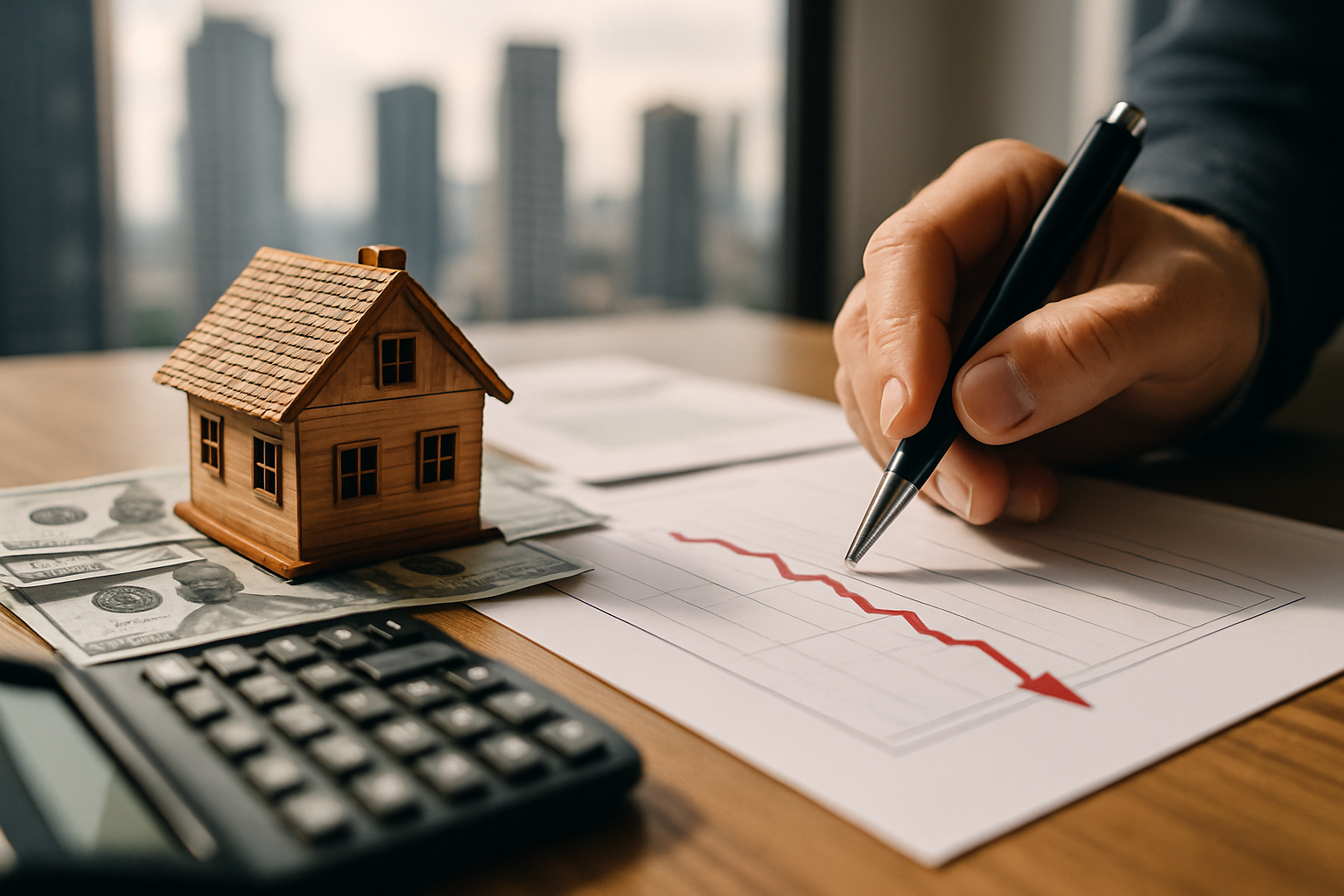Decoding the Impact of Interest Rates on Real Estate Investments
The world of real estate is a complex one, with numerous factors influencing the market dynamics. One such critical factor is the interest rate. It plays a pivotal role in shaping the investment strategies of both buyers and sellers. This article delves into the intricate relationship between interest rates and real estate investments, offering a comprehensive understanding of its implications.

Understanding the Basics: Interest Rates and Real Estate
Interest rates are essentially the cost of borrowing money, and in the real estate context, they directly impact the cost of mortgages. When interest rates are low, borrowing becomes cheaper, making it more affordable for potential buyers to purchase properties. Conversely, when interest rates rise, the cost of borrowing increases, which can deter potential buyers and slow down the real estate market.
Historically, the Federal Reserve has manipulated interest rates to control inflation and stabilize the economy. For instance, during the 2008 financial crisis, the Fed slashed interest rates to stimulate economic recovery. This move made mortgages more affordable, encouraging people to buy homes and reviving the housing market.
The Current Scenario: Low Interest Rates and Real Estate Boom
In response to the economic fallout from the COVID-19 pandemic, the Federal Reserve has kept interest rates at near-zero levels. This has led to a surge in mortgage applications and a booming real estate market, despite the economic uncertainty.
Low interest rates have made it cheaper for people to buy homes, leading to increased demand in the housing market. This demand, coupled with a limited supply of homes, has driven up property prices. For sellers, this has been a golden opportunity to fetch high prices for their properties.
The Flip Side: High Interest Rates and Real Estate Slowdown
While low interest rates can stimulate the real estate market, high interest rates can have the opposite effect. When borrowing becomes expensive, potential buyers may be deterred from taking out mortgages, leading to a slowdown in the housing market.
High interest rates can also impact real estate investors who rely on borrowed money to finance their investments. The increased cost of borrowing can eat into their profits, making real estate investments less attractive.
The Future Outlook: Interest Rates and Real Estate Trends
Predicting future interest rates and their impact on the real estate market can be challenging. However, experts suggest that as the economy recovers from the pandemic, interest rates may start to rise. This could potentially slow down the booming real estate market.
For buyers, this might mean waiting for the right time to invest in real estate. For sellers, it could mean capitalizing on the current high property prices before the market slows down. And for investors, it might mean reassessing their investment strategies to account for potential changes in borrowing costs.
Wrapping Up: Navigating the Interest Rate Landscape
Understanding the relationship between interest rates and real estate investments is crucial for making informed decisions. Whether you’re a buyer, seller, or investor, being aware of how interest rates can impact the real estate market can help you navigate the complex landscape and optimize your investment strategies. As the old adage goes, knowledge is power, and in the world of real estate, it can be the key to unlocking lucrative opportunities.






